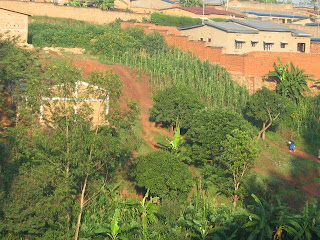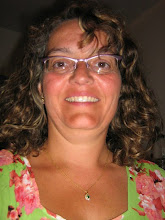
So it is 8:15 pm here and that gives me about an hour and a half if I am lucky before the lights go out to pack, eat supper, and do a few last minute things before departing in the morning. It has been a bit of an adventure arranging for a ride to the airport. I said goodbye to the family I have been staying with—got a bit “misty” thinking about not seeing little Tim again but managed to keep my emotions somewhat in check for now. They went up country for a peace and reconciliation festival. Tomorrow is Saturday which is a national “work day”—that means no one can travel between 7 – 10 am without being hassled by the police unless you have a special permit. The president is usually out planting trees or some such thing and others are expected to do the same. I have been trying to arrange for a taxi ride but it is complicated. I will spare you the details of the arrangements but he did come by today and I have not paid him so I am assured that he will pick me up—hopefully on time as this afternoon he was 45 minutes late which would mean I would probably miss the plane. Ah, African time.
Anyway, having written on my blog that I had not seen any drumming or dancing must have meant I was supposed to see some. Today, visiting a Deaf friend, there were drummers by his place so we watched them dance and drum. They were walking around with the drums on their heads as in the photo when we arrived which I thought was an interesting way to play the drums. Anyone from the Manitoba School for the Deaf drumming group want to try that????
After awhile, my Deaf friend asked if I had bought any dresses yet and when I replied no, he said that I could not leave without one so off we went shopping—his treat. He bought me two outfits—one a very traditional one, complete with a head wrap that I will need my colleagues in Nairobi to show me how to wear, and the second a more casual one piece dress made out of traditional cloth. They are both beautiful and he was incredibly generous. I feel blessed to have had the opportunity to spend some time here in the Deaf Community.
On the way back to my place, he wanted to know if I could quickly stop and meet his mother which we did. Well, you can imagine how this poor woman was excited to have a muzungu visit her at night at her home. She almost cooked me a meal but oh, my, the very thought of her doing so, was overwhelming. After that, we got into a gridlock and were stopped for a brief time in traffic in the pouring rain. We were rear-ended but not too badly since traffic was not really moving at the time. Hopefully, I will have no ill effects from it. At the moment I feel ok but you know I never turn down prayers.
So it is my last sleep here in Bujumbura…..let the next leg of the adventure begin!!
Peace,
Suz
Anyway, having written on my blog that I had not seen any drumming or dancing must have meant I was supposed to see some. Today, visiting a Deaf friend, there were drummers by his place so we watched them dance and drum. They were walking around with the drums on their heads as in the photo when we arrived which I thought was an interesting way to play the drums. Anyone from the Manitoba School for the Deaf drumming group want to try that????
After awhile, my Deaf friend asked if I had bought any dresses yet and when I replied no, he said that I could not leave without one so off we went shopping—his treat. He bought me two outfits—one a very traditional one, complete with a head wrap that I will need my colleagues in Nairobi to show me how to wear, and the second a more casual one piece dress made out of traditional cloth. They are both beautiful and he was incredibly generous. I feel blessed to have had the opportunity to spend some time here in the Deaf Community.
On the way back to my place, he wanted to know if I could quickly stop and meet his mother which we did. Well, you can imagine how this poor woman was excited to have a muzungu visit her at night at her home. She almost cooked me a meal but oh, my, the very thought of her doing so, was overwhelming. After that, we got into a gridlock and were stopped for a brief time in traffic in the pouring rain. We were rear-ended but not too badly since traffic was not really moving at the time. Hopefully, I will have no ill effects from it. At the moment I feel ok but you know I never turn down prayers.
So it is my last sleep here in Bujumbura…..let the next leg of the adventure begin!!
Peace,
Suz











